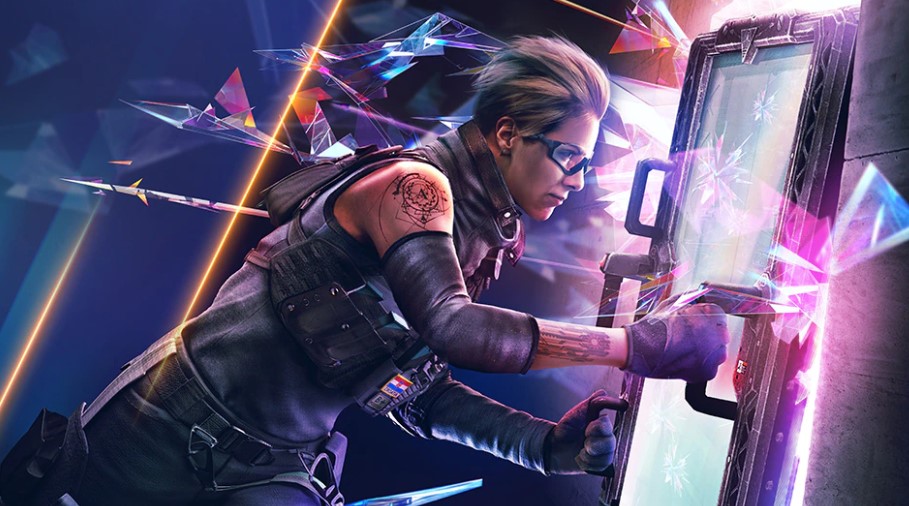Knowing Yourself Is Half the Battle
Posted: 27 Jun 2023I didn’t have a queer role model growing up. The only tangible examples of people like me I ever saw were the ones presented in movies and television. You know, the ones who are constantly tormented and tortured, who can’t possibly hope for a happy ending. I’ve come to call those “exercises in empathy for cishet people”. For me, it had the lovely effect of making me believe that if I dared to be too feminine, too far from what was expected of me, I’d be bashed. I wouldn’t make it. Don’t get me wrong, I love movies, television, literature, all things art. But video games were what taught me to be me. Without that, I’m not sure I would have made it this far.
Historically, video games have mostly asked us as players to put ourselves in someone else’s shoes. This roleplay usually ends up forcing us to experience one of two things: be someone who is like you, or someone who is unlike you. The simple facts of not identifying with Master Chief, of maining the Green Archer in Gauntlet Dark Legacy, of having Jet on lock in Fuzion Frenzy – these are markers of identity through which I understood what felt like me. A game doesn’t tell you who you’re supposed to be; it just takes you on a journey, and then asks you how you felt about it.
Identity is often pushed onto us through familial and societal expectations, and through messages we receive, consciously or not, in the media we consume. That’s why games like Fable, The Sims, and The Elders Scrolls III: Morrowind were so formative for me. They allowed me to explore on many levels: what is my moral compass, what do I want to dress like, what is my favorite type of magic, what kind of people am I attracted to? Fable embodied all of this. You could dress in a myriad of ways, share a home with a wife or husband, and decide what kind of hero you are. My parents may have taught me to always be kind, but games like Fable gave me the tools I needed to decide that I wanted to be kind.

And that’s where it goes further, really: the tools we’re given. I wouldn’t be half as competent or stable a person without video games. As a sports-averse introvert, a kid with ADD, and an autistic adult with memory issues, my learning opportunities are limited. I dropped out of CEGEP (the Québec equivalent of college) when it became clear that I don’t have the brain for higher education. Video games though? They taught me English, how to read maps, how to problem-solve, how to be patient, how to develop more efficient methods when the ones that came naturally fail me. I can’t even point to a specific game for most of these – that’s just the nature of gaming.
It was a surprise to no one but myself that I ended up working in video games. I had always intended to write novels but spent the majority of my time playing, so when it dawned on me that games have to be written, the path forward was obvious. From dev tester to scriptwriter, it was refreshing to be in a space I understood, but the most fulfilling task was one I hadn’t even dreamed of doing: writing characters like me into a game.
At the time of writing, Tom Clancy’s Rainbow Six Siege has five official queer characters. I was involved in the development of three. Sidenote: I didn’t always identify as non-binary. For a long time, I believed I was a gay man. In the years leading up to my work on Anja Katarina “Osa” Janković, a trans woman, I learned a lot about gender identity through my online presence. An in-theatre, pre-pandemic viewing of Frozen 2 revealed I still had some things to figure out, but getting to know Osa in work-from-home answered so many questions.

Credit: Ubisoft
I’m now on the other side of things, where I’m watching my work in games affect the people who play them. Several players I engage with online have told me that characters I worked on helped them realize their identities or feel like they belong. Of course few things are done alone, especially in AAA games, but I can take some pride in the part I played, right? Healing your inner wounds is as much about closure as it is about making sure that those who follow will encounter less obstacles.
Video games held my hand when reality gave me nothing to work with. My one gay uncle was long gone by the time I started asking myself questions. The movie C.R.A.Z.Y., supposedly the peak of queer Québecois cinema, instilled a fear in me that might have been unjustified. Glee only started airing in 2009, and even then, much of Kurt’s story revolved around queer pain. But in Fable, I married a man, and I was Albion’s savior.
Written by Simon “Seven” Ducharme
